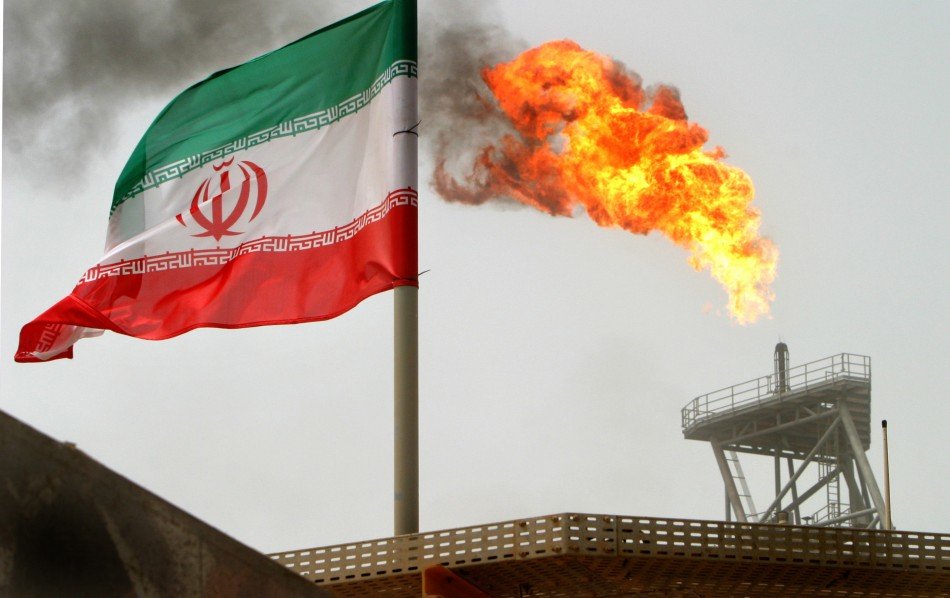Iran aims for more foreign oil and gas investment after Total deal

Iran is hoping to secure more overseas investment after a consortium led by France’s Total on Tuesday signed a $4.8 billion deal to develop part of the giant South Pars gas field — the first major energy agreement since the country’s landmark nuclear accord.
“This is an icebreaker and we shall see more multibillion-dollar oil and gas contracts with other companies including Russians and Europeans soon,” Amir-Hossein Zamaninia, Iran’s deputy oil minister for international affairs told the Financial Times.
“The next agreement might be in a few weeks,” he added, without giving further details.
Iran has the world’s second-largest gas reserves and fourth-largest oil reserves, according to the U.S. Energy Information Administration, but needs $200 billion of investment to revive its antiquated energy sector over the next five years.
Total will be joined by China’s CNPC and Iran’s Petropars to develop Phase 11 of South Pars, the world’s largest gas field that is shared between Iran and Qatar.
The three companies are expected to invest $4.8 billion in Phase 11. On Tuesday the companies signed a provisional agreement in Tehran with the National Iranian Oil Company, the state-controlled energy group.
The final contract, expected to be inked within months, is due to last for 20 years.
The agreement is a big victory for Hassan Rouhani, Iran’s president, who has been questioned by critics at home about the limited economic dividends so far from last year’s agreement with major powers to curb Tehran’s nuclear program.
Some international sanctions have been lifted, but the continuation of U.S. measures against Iran has made overseas companies, including banks, wary of working with Tehran.
Patrick Pouyanné, chief executive of Total, said the company’s Iranian investment would be done without bank financing and would be “internationally compliant”. The commercial terms were “attractive”, he added.
CNPC could not be reached for comment.
For Iranian oil officials, history has repeated itself. Total defied U.S. sanctions in 1997 when it signed a $2 billion contract with Iran to develop another part of South Pars.
This paved the way for companies including Royal Dutch Shell, Italy’s Eni and Norway’s Statoil to follow suit.
Bijan Namdar Zanganeh, Iran’s oil minister, said at the signing ceremony that he was “thankful to Total for always being a pioneer and coming back to Iran at a difficult time again”.
He added: “I hope this will allay concerns of other companies so that they can enter Iran’s market quickly.”
The contract with the Total-led consortium will be consistent with Iran Petroleum Contract, which serves as a blueprint for deals with overseas energy companies.
Phase 11 of South Pars is estimated to hold 21 trillion cubic feet of gas, and should produce 2 billion cubic feet a day at peak production.
Production is due to begin 40 months after the contract is signed, with Total taking a 50.01 percent stake in the project, CNPC on 30 percent and the remainder held by Petropars.
Other European energy companies have expressed an interest in returning to Iran.
However, Shell and BP are being cautious. People familiar with the companies’ thinking said there were two main obstacles to investment in Iran, where both groups have opened offices this year.
The first is the continued existence of U.S. sanctions against Tehran, which requires any business to be done without touching the U.S. banking system. The second is that Iran faces competition from a range of other investment options.
Industry insiders cited Total’s lack of a significant presence in the U.S. as a factor that made it easier for the French group to blaze a trail back into Iran. U.S. majors and European groups with big U.S. operations, including BP and Shell, would be more cautious because of the continued U.S. sanctions, added the insiders.
(Source: Financial Times)
Leave a Comment